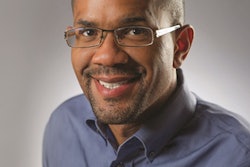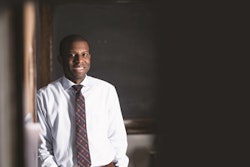When Dr. Karla-Sue Marriott interviewed in 2006 for a teaching and program post in the College of Science and Technology at Savannah State University, Dr. Jonathan Lambright was a faculty member.
The young chemist, he recalls, was “very genuine, very down to earth, and very accomplished, academically,” Lambright says enthusiastically before easing into one of the things that also “makes her unique.” At first glance, says Lambright, now interim dean of the college, it’s Marriott’s hair: “It’s stunning; it’s just beautiful. It looks like her face is engulfed in the sun.”
“That’s me,” Marriott says matter-of-factly of the familiar description her big hair often elicits. Keeping most things in her busy academic life unfettered and real is how Marriott says she likes to operate. “I don’t want to have to think about decisions — what to do with my hair or what outfit to choose for work in the morning,” she explains.
Marriott is on a mission in the classroom and in her laboratory. During her first five years at Savannah State, the new professor worked with other faculty and administrators to transition a minor in forensic science to an undergraduate major with concentrations in chemistry and biology. The program was one of the first in the state of Georgia. Since 2011, the program has been training graduates who are competitive and prepared for positions in areas like toxicology and criminal justice, says Marriott, whose first job out of college was as a forensic officer in charge of rape and murder cases.




















